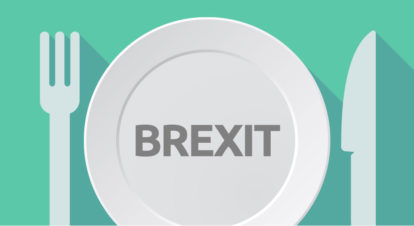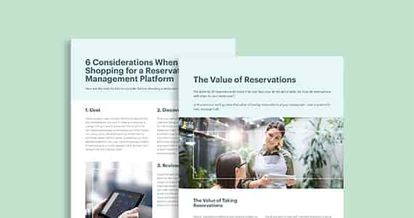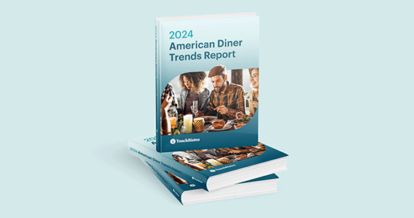Unless you’ve been living under a rock, you’ve probably grown sick of hearing chatter about the consequences of Brexit.
It’s enough to make you want to go and live under a rock.
And yet, for all the tedious debate about the potential Brexit impact on the restaurant industry – and virtually every other industry – the frightening reality is that nobody really seems to know what’s going to happen.
With the recent decision to delay the UK’s departure from the EU until October, business owners can breathe a sigh of relief.
For now.
In this article, we’ll explore the potential repercussions of the Brexit impact on businesses in the UK food sector, including how Brexit may cause:
- Staffing issues
- Delivery delays
- Food shortages
- Increased prices
More importantly, we’ll share actionable ways to take on these challenges, and ultimately, we’ll show you how the right tech can help your business, your employees, and your customers all come out on top.
5 Possible Consequences of Brexit Restaurant Owners Should Fear
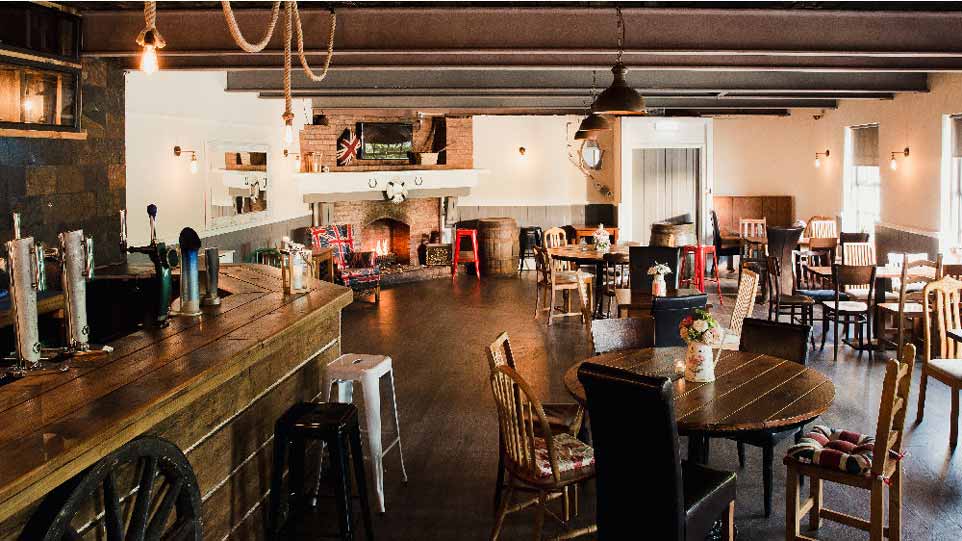
Before the delay was confirmed, the UK food industry delivered a stark warning to the government. A collective group announced they would cease co-operating with upcoming policy consultations.
The letter, signed by over 30 industry leaders, basically demanded that the government hit the pause button on all planned industry consultation until the uncertainty about Brexit is finally sorted.
So, what is everyone worried about?
There is much speculation about what will happen, so we can’t be sure that the country will go to pot. However, it doesn’t hurt to stay in-the-know.
When considering the potential effects of Brexit, restaurant owners should prepare for the following:
1. Struggles with Staffing
In the UK, almost 25% of food industry employees are EU nationals. The looming prospect of changes to their residency rights and employment requirements is a major thorn in the side of UK restaurant owners.
The renowned Israeli-British chef, Yotam Ottolenghi, asserts this effect of Brexit on restaurants is already happening: “We’ve had a much slower influx of Europeans coming to work with us since Brexit.”
The staffing issues go beyond waiters and cooks – the potential consequences of Brexit mean the UK may also run short of HGV drivers to transport food from the EU.
If Brexit brings the axe to the free movement of people, restaurant owners will need to get savvy about recruiting staff.
2. Import Delays
Speaking of a lack of drivers, one of the big concerns for the food industry is that Brexit will impact shipping times for perishable products.
Fruit and vegetables don’t have a long shelf life, so any hold-up at docks like Calais could be a major problem for the UK food sector.
If supply chains slow down, products may not be as fresh when they arrive, which could impact the quality of the food in UK restaurants. This could damage your brand reputation and your bottom line.
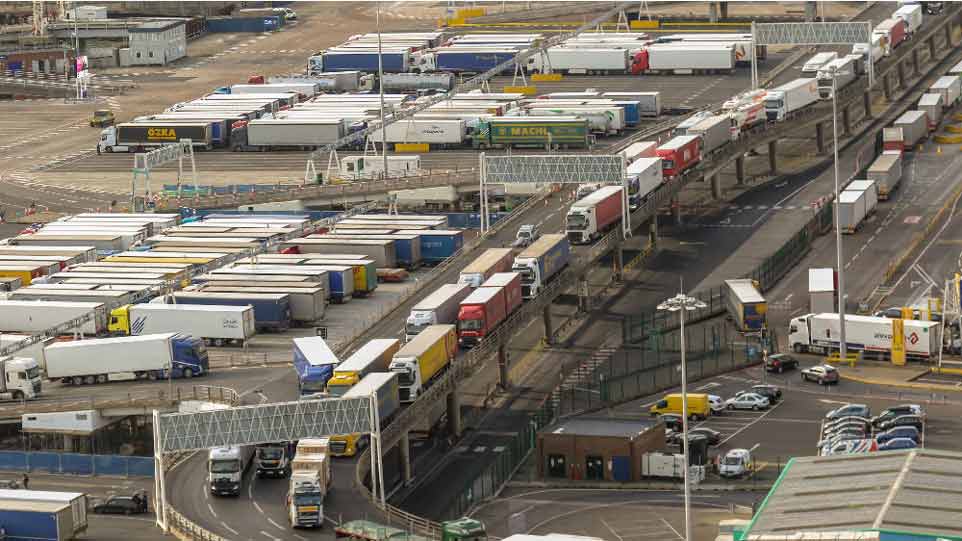
3. Food Shortages (Especially If We Can’t Grow It Here!)
Delays are one thing, but being able to get certain items at all? A whole different problem Brexit might bring on.
Business Insider reported that the UK imports as much as 80% of its food, much of which comes from the EU.
Changing tariffs and delivery delays are expected to be a big part of the Brexit impact, regardless of what kind of deal the UK strikes. While the UK can turn to homegrown produce, the availability of popular imports may take a hit.
Then there’s the issue of harsh British winters making it harder to rely on our own farms. It seems inevitable that Brexit will cause some type of food shortages across the UK, particularly for fruit and vegetables.
4. You May Have to Change Your Menu
Britain has a cosmopolitan array of cuisine to offer the world – the UK even proclaimed Chicken Tikka Masala to be a British national dish.
However, if you want it made right, then you need skilled chefs from South East Asia. With Brexit threatening the residency status of foreign workers and making essential materials hard to import, the UK food scene could undergo a transformation.
If you needed any proof that the Brexit impact is going to change the UK restaurant scene, look no further than the famous curry houses in London. Restaurant owners are facing a loss of talent that could cripple the curry industry and destroy this popular facet of British cuisine culture.
5. Currency Crashes Killing Your Profit Margins
The Brexit impact on the pound is hard to miss. It’s been unstable throughout the ongoing talks, dropping from $1.45 to $1.30 against the US dollar since the 2016 referendum. The Financial Times recently reported the pound may lose its status as a global currency if things unravel much more.
But what does that mean for restaurant owners?
When you pair this currency dip with a possible hike in food prices, the power of the pound is significantly weakened.
And it’s not just for business owners – the customers will feel that pinch too. A weakened pound will make consumers less willing to spend theirs. So even when restaurant owners ship in their more expensive raw materials, they could find it harder to sell the finished products in restaurants.
How EPOS Features Can Help Your Restaurant Conquer the Brexit Impact

While this gloomy forecast may make you want Brexit to bugger off, you should keep in mind that much of this is speculation based on what the government and media have dished up so far.
One thing we can be sure about is this:
Whether you ordered it or not, Brexit is still on the menu.
The good news is that there is still time for you to prepare for whatever lies ahead.
Better yet, we’re here to give restaurant owners everything they need to protect their business, come what may. By getting an innovative subscription-based EPOS system, your restaurant can take on Brexit and come out on top in five key areas:
1. Make More Money with Savvy Service
The Brexit impact on businesses may make it harder to turn a profit. Especially if you are dealing with limited supplies and higher prices.
However, when you have the right technology, you can profit from every customer.
With a mobile POS system, restaurants can increase their revenue in a couple of ways:
- Serve customers quickly with table-side ordering – Taking your POS system tableside reduces order times and allows people to check out at their table. This will speed up turnover so people are more inclined to wait for a seat rather than go to a competitor.
- Identify bestsellers – The data analysis on your ingredients and sales will give you the insight you need to optimise your menu and make the best use of materials.
2. Save Money with Smart Budget Management
Good business isn’t just about making money – you also want to make sure you aren’t needlessly throwing it away.
Smart budgeting is vital at any time running a business. As restaurant owners feel the consequences of Brexit, it’s even more important to hold onto your money.
Use your POS reports to inform your business decisions and save money where you can. Using inventory management will help you avoid overspending on food waste, and staffing software will help you make better staffing decisions in busy times.
Here are a couple of ways an EPOS system can help your restaurant save money to counter the Brexit impact:
- Efficient staff management – The uncertainty could result in overstaffed restaurants dealing with relatively few customers, especially if people are worried about their spending power after Brexit. You can use the POS system’s data to identify your busiest days and periods, and your most effective employees. This allows you to determine how many people you actually need on any given shift.
- Inventory Management – The latest POS systems provide you with a holistic view of your stock. You can keep an eye on things to reduce waste and prevent theft.
3. Enhance the Customer Experience so People Come Back (with Friends!)
Nothing ruins the taste of good food quicker than bad service.
Good restaurants aren’t just about food. You need a good atmosphere and great customer service to create an experience diners will come back to.
You may be surprised how a POS system can help here:
- Less chance of order errors – Customer orders are recorded in the system and sent to the kitchen with the touch of a button. This way, even when the restaurant is hectic, there is virtually no chance of an order being forgotten or mixed up.
- Boost customer satisfaction – POS features that help you deliver better service, shorter wait times, and more convenient checkout will make you stand out. By putting a smile on every customer’s face, you can look forward to repeat business and referrals.

4. Use Data Reporting to Dig Deep and Learn More About Your Business
From stocks to employees, customer tastes to financial pressure, restaurant management can be a real pressure cooker!
Thankfully, data-based reporting can make your life easier. With restaurant data, you can gain in-depth insights about your business.
Here are a couple of ways data reporting can give you an edge:
- Smarter business decisions – By analysing data reports, you’ll have a big-picture view of everything that is going on. This could, for example, guide your decision-making in relation to ordering stock or setting menu pricing.
- Spot trends – By evaluating market movements and changes in consumer interests, you will be able to identify opportunities for making or saving money. For example, you can use heat maps to understand trends during your busiest periods, and adjust your staff accordingly to increase turnover.
5. Empower Staff to Be More Productive
If your business is going to remain competitive in trying times, you need to be sure everyone is on board.
While digital transformation can seem daunting, innovative technology actually paves the way for staff empowerment.
Here’s how your employees can use a POS system to level up:
- Increase knowledge – The information and interactive tools that POS systems provide can help your employees to become more knowledgeable about the menu so they can recommend and up-sell products.
- Increase employee satisfaction – With more knowledge and greater responsibility, your employees will feel more confident in their roles. No wasted time returning to the kitchen for details on sold out items or allergy info.

The Right Tech Will Tame The Consequences Of Brexit
All things considered, the Brexit impact doesn’t sound too tasty. However, businesses in the restaurant industry shouldn’t worry – if they’re prepared.
By harnessing the innovative features, data insights and mobility of an EPOS system, you can maximise your returns with every customer, optimise your menu for greater profitability, and exercise greater control over your stocks, pricing, and staffing.
With the right technology, your restaurant business will remain steady throughout the storm.

